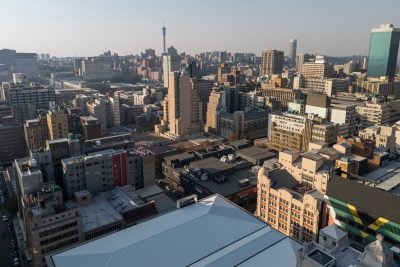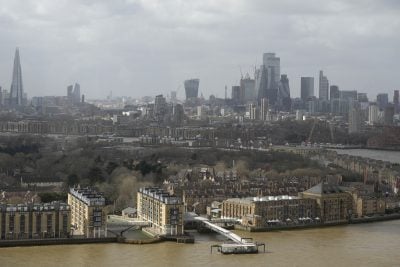Rwanda’s long era of economic growth was disrupted by the pandemic, but the government believes that its next long-term plan will entice investors back. Uzziel Ndagijimana, minister of finance and economic planning, spoke to Lars Larsson about the country’s recovery plans.
How has the Covid-19 pandemic affected Rwanda’s economic growth?
The sudden emergence of the Covid-19 pandemic disrupted our previously fast pace of progress. Economic growth in 2020 was -3.4%, which was our first contraction since the total economic collapse of 1994 brought about by the genocide.
The virus officially reached Rwanda in mid-March 2020, but had affected our economy before that because of the disruption of international supply chains and travel. Despite this, economic growth in Q1 2020 was 3.6%, but dropped off sharply as the government started to impose tight measures to prevent the spread of the virus.
Prior to that we had time to put in place measures and procedures to limit the impact of the virus on the population. This had the effect of minimising the loss of life, but also of constraining economic activity. These effects were fully felt in Q2 2020, when growth plunged to -12.4%.
Growth remained negative in Q3 and Q4, but also showed signs of improvement as we adapted to the ever-changing situation by loosening restrictions on some parts of the economy. Q1 2021 registered growth of 3.5%, and year-on-year growth in Q2 was a record-breaking 20.6%, before stabilising at 10.2% in Q3.
The data for Q4 2021 will be released in March 2022, but the average growth over 2021 is expected to be 10.2%, the highest rate in Africa, and revised up from the 5.1% that was projected in 2019.
How has the Rwandan government managed the recovery from the Covid-19 pandemic?
Covid management has become the main determiner of economic growth, so getting the restrictions right was crucial. The country’s executive showed strong leadership and oversaw close cooperation between different ministries and other parts of government to present a targeted, coordinated approach.
A national standing committee, chaired by the prime minister, met every two weeks to discuss progress and strategy, and was guided by the latest scientific advice. In April 2020, the government adopted a recovery plan, which was arranged into a three-pronged approach: medical, social, and economic.
We used all channels to acquire the necessary testing and tracing capabilities, and invested in testing and isolation centres. These measures were aimed at making sure the health system did not become overwhelmed and that there were always ICU beds and respirators for anyone who needed them.
This was aided by the imposition of several total lockdowns, mainly in Kigali but also in some other cities. Individuals entering the country were tested immediately and then required to isolate for three days.
To avoid further slowing the economy, this requirement was waived for truck drivers entering or leaving Rwanda, who were tested and then monitored – sometimes by satellite – to make sure that they stuck to their routes and designated hotels until their results were known.
Another example of an imaginative deployment of technology at this time was the use of robot carers at hospitals to ease the burden on nurses at treatment centres and minimise human contact.
To provide employment and use the opportunity to pursue pre-existing development plans, we released investment funds and accelerated the implementation of public works to keep the economy going. We fast-tracked plans to expand the number of classrooms in schools in rural areas to provide jobs now and better education in the future.
Within 10 months we had constructed over 20,000 classrooms at a cost of $200m, half of which was provided by the World Bank. Such a project would normally have taken us three years and disrupted the education of students, who at this point were studying from home anyway. When they came back to school they had more, bigger, and better-ventilated classrooms. Similar programmes were instituted for road construction.
We also tried directly to help the private sector with the creation of the Economic Recovery Fund (ERF) of $100m to support the most affected businesses. Our first target was the hotel industry, which had been badly affected by the collapse of tourism from the beginning of 2020. Most of these companies had taken out loans that they were now unable to pay, and mass defaults would have further damaged the banking sector.
Around 90% of the ERF has now been spent, and the programme has been effective, though there is still work to be done. In 2021 we borrowed enough money to increase the ERF from $100m to $350m, which was put to use in January 2022.
We are spending $150m to promote new investments to support the recovery and stimulate key parts of the economy. Most of it has gone to small businesses in need of startup capital. This programme existed before the pandemic, but we ramped it up when we felt the time was right and distributed it across the whole country.
What has been the response from the international financing community to Rwanda during the pandemic?
The Covid pandemic has presented an opportunity for resource mobilisation. The international financing community became more responsive to requests for financing. We received $200m from the Asian Infrastructure Investment Bank as a new member, half of which went into the ERF, along with $150m from the World Bank. In 2020 we successfully raised a Eurobond of $650m, the biggest in Africa.
This demonstrates that investor confidence in Rwanda is very high, even in the middle of a pandemic and in the face of strong competition. We could have raised as much as $1bn, but we didn’t need it since we had the pandemic under control, and because it didn’t fit with our debt strategy.
In which sectors of the economy are you seeing growth?
The country and its work culture has remained resilient throughout. Agriculture has been strengthened. Manufacturing grew consistently throughout the pandemic, from around 16% to 19% of the economy. The service sector is showing signs of a speedy recovery. This is particularly true of ICT, which is believed to have grown by 30%, and which is so important to the government’s future plans under Vision 2050.
Technological advancement actually received a boost from the pandemic as digital solutions were applied to encourage social distancing, and continues to grow apace. Transport was affected but is recovering fast, including aviation. The hospitality sector is still below the pre-Covid level but is also seeing increased activity.
How are you positioning Rwanda as a regional financial centre?
We are diversifying our economy and exploiting our geographical location. As a landlocked country, import and export costs are very high. But we can also turn this into an opportunity by investing heavily in regional logistics and high-value services, particularly ICT and finance.
This is a key part of the Vision 2050 plan and central to our ambitions as part of the African Continental Free Trade Area. To accomplish this we are creating an environment of trust, good governance, low corruption, and compliance with international financial standards.
After some further legal reforms and capacity building, we plan to position ourselves as a regional financial centre. That was the inspiration behind the creation of the Kigali International Finance Centre (KIFC), which is managed by Rwanda Finance Limited. The objective is to attract funds, banks and financial management companies to Kigali to finance developments both in and outside Rwanda.
We are set to further reform regulations relating to business and finance, which were passed with the help of international consultants working to international standards. This will offer confidence and familiarity to international investors.
The centre has attracted a lot of investment already. Some 35 companies have already expressed interest, 20 of which have already incorporated in Rwanda. These include fintech startups, investment companies, law firms, and banks.
Want to continue reading? Subscribe today.
You've read all your free articles for this month! Subscribe now to enjoy full access to our content.
Digital Monthly
£8.00 / month
Receive full unlimited access to our articles, opinions, podcasts and more.
Digital Yearly
£70.00 / year
Our best value offer - save £26 and gain access to all of our digital content for an entire year!
 Sign in with Google
Sign in with Google 



